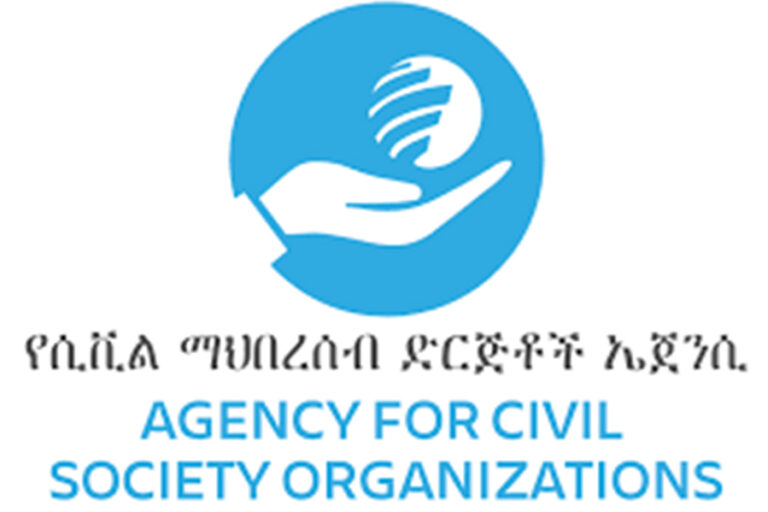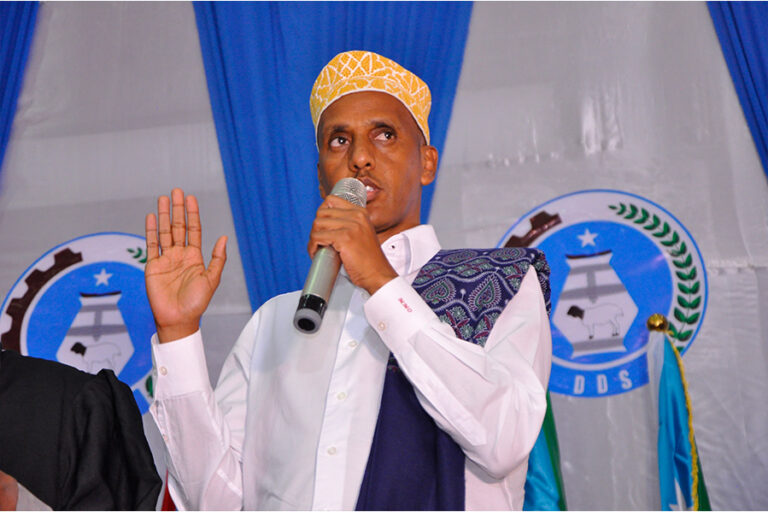Goh Betoch Bank SC, the first mortgage financial firm, is officially set to open its door as of tomorrow at its head quarter.
The mortgage bank that received its license from the financial sector supervisory body, National Bank of Ethiopia (NBE), in August is expected to be an alternative source of finance for housing scheme, which usually access less than 10 percent from the total fresh loans in the financial industry.
The information obtained from Goh indicated that the first branch of the bank will be opened on Africa Avenue, Abderuf Building around Japan Embassy starting from October 25 as the 21st bank.
The bank that is also expected to conduct other commercial banking services besides mortgage has targeted to expand its presence at the capital and other cities in the coming months.
At the official license handing over ceremony held mid-August Yinager Dessie, Governor of NBE, promised to back the operation of the first private mortgage bank with supportive policy direction since the operation of the bank is unique from the usual commercial banking activity.
At the ceremony Mulugeta Asmare, founding president of Goh, said that the bank is expected to see some policy changes from the regulatory body and the government in general to attain its target, which is also one of the government top economic development pillars that is mentioned on its ten year economic plan.
Couple months ago Getahun Nanam, Chairperson of Board of Directors of Goh and former Vice Governor of NBE, said that the bank has been in process for three years to realize the dream to become the first mortgage bank in the country.
He said that the housing financing scheme in Ethiopia is very poor despite the demand being very high making the housing issue a top priority.
Getahun cited a study that to ease the current accumulated housing demands, at least 1.2 million houses ought to be built as soon as possible, “besides that every year 100,000 houses have to be constructed to cover fresh demands.”
According to the veteran financial pundit, 70 percent of the existed houses in cities are under standard that actually need reconstruction.
“Meanwhile this is the reality; the existed financial firms are not providing the required fund for the housing and construction sector. Due to that we are formed to fill the gap,” the Board of Directors Chair explained.
According to data from NBE the construction and housing sector has not benefited more than 10 percent of the total loans that banks provide.
“Currently, except the Development Bank of Ethiopia all banks have similar operation and with similar policy but when it comes to Goh, we are coming with different services that need different regulation and policy from the regulatory body,” Mulugeta elaborates, adding, “due to that starting from policy change we need support from NBE to amplify our operation.”
“We want to see preferential treatments on NBE policies like the composition on long term loans portfolio, which is now 20 percent of the total portion of loans and advances for commercial banks, and enable to be partner with foreign fund sources,” Mulugeta, who is well know by his role to register massive success at Bank of Abyssinia as a president, told Capital.
The policy change on the composition of loan portfolio would allow the bank to get huge amount of long term deposit and at the same time provide long term loans that are given for more than five years.
Goh has targeted that the majority share of loans portfolio would be long term.
“There are also opportunities that Goh shall work with international institutions to access and using idle funds to support our mortgage business, due to that on this side also NBE is expected to make consideration,” he explains, while he added that so far the bank would use the current environment for operation.
Mulugeta said that the bank also expects conducive policy environment and other segments of supports from Ministry of Urban Development and Construction and similar public offices in regions and cities to realize the housing solution in the country.
Yinager said that NBE will consider supports for such kind of specialized financial firms, “the country needs different specialized banks besides the existing commercial banking scheme.”
He said that currently, most of the existing banks are financing the commerce, while residential housing problem mainly in urban areas is very high that should be backed by a financing scheme.
Goh includes 6,658 shareholders. Its subscribed capital is 1.056 billion birr of which 521.5 million has been paid up.
Goh is the first after the Housing and Saving Bank (HSB) that was formed by the merger of Imperial Savings and Home Ownership Association and the Savings and Mortgage Corporation of Ethiopia mid 1970 during the Derg period. HSB was also reconstituted to Construction and Business Bank (CBB) in 1994 before it became defunct and merged under the state giant Commercial Bank of Ethiopia in 2016.
Goh Betoch Bank officially opens its doors
Al Maktoum Foundation receives back permit as investigation on two NGO continues
The Ethiopian Agency for Civil Society Organizations which changed its name to Ethiopian Civil Society Organization Authority has given back work permits for Al Maktoum Foundation one of the three, Non-Government Organizations (NGO) which have been previously banned due to unlawful acts. The authority is also completing its investigation on the other two organizations to give back their permit
Also according to the information Capital has obtained, the authority is investigating certain international organizations that are doing illegal acts which will be released in the coming days in order to take the necessary measures.
“Activities of civil organizations should be based on their mission with respect to the country laws and sovereignty,” said Jima Debol director of the authority, indicating that some international organizations are still working illegal acts. “The authority will take various remedial measures, ranging from warnings to suspensions and closures of the civil society organizations that threaten Ethiopia’s sovereignty, unity and security depending on the nature of the damage,” the director remarked. As he said the authority is investigating and various punitive measures which will be taken against some charities that are operating outside of the objectives they were established.
On August 4 2021, the agency suspended the license of three foreign Non-Government Organizations (NGO) such as MSF Holland, the Norwegian Refugee Council and Al Maktoum Foundation. The reason behind the ban ranges from engaging in an unpermitted area of operation to disseminating misinformation.
The agency has identified rule violations by these organizations while monitoring their activities, MSF Holland and the Norwegian Refugee Council have been disseminating misinformation in social media and other platforms outside of the mandate and purpose for which the organizations were permitted to operate. Also, these organizations employed foreign nationals without the appropriate work permit from the Ethiopian government for more than six months.
MSF Holland illegally imported satellite radio equipment and made use of it. Since the equipment was not authorized by the relevant government authority, the employees were thus apprehended by the security forces for using the equipment for illegal purposes.
Furthermore, Al Maktoum Foundation failed to comply with the Ministry of Education’s COVI D-19 protocol, its mismanagement of budget and problems with staff management.
Despite repeated discussions with the executives of all the three organizations, they were unable to fix the situation.
The Agency for Civil Society Organizations stated that the activities of the organizations have been suspended for three months in accordance with Article 77 (4) of Proclamation No. 1113/2011 until a final decision is made.
In related news on Friday October 22, 2021 the authority and its international partners together launched the Ethiopian Civil Society Organizations Mapping study.
The study which is supported by the EU civil society fund (III), civil society support programme phase 2 and the federal agency for civil society organizations has been ongoing for the past six months throughout the country perhaps because of the intensification of the war in Tigray region and parts of Amhara region’s deterioration of security in parts of the country it has been limiting the researchers.
The purpose of the research is said to provide updated multidimensional information on CSOs in Ethiopia operating at national and regional levels.
In undertaking the study the experts interviewed 324 key informants from 262 institutions pertinent to the civil society sector.
There are three types of civil society organizations operating in Ethiopia one national civil society organizations, one national civil society organizations which are registered at federal level, regional and sub-regional, the second one is international civil society organizations and the last one is CBOs and other informal social groupings.
According to the study currently there are 3,244 civil society organizations, 2,732 local civil society organizations, 50 consortiums of civil society organizations and 462 international civil society organizations operating in Ethiopia.
Somali region inaugurates new government
Somali region, which recently conducted the 6th national elections, has formed its government early this week at the regional council held at the regional capital of Jigjiga.
On its session held on Monday October 18, the council has elected new government including Ayan Abdi as the first female speaker of the council.
As expected the regional council has elected the well accepted Mustafe Mohammed, who served as vice president since the reformist government took power in the region, as Somali region president.
On his past leadership in the past three years the new leadership has registered massive reforms in the political, economic and social arena that helped to grab public attention and their support on the election.
The council has also approved the regional cabinet that includes 27 bureau heads. According to the information Capital obtained from the region the new cabinet oddly includes opposition political figures, while new faces have also been included on the top leadership club.
The region that is expected to be one of the top performers with an anticipated agriculture sector development in the country due to its enormous fertile land and water resources is stated by pundits that it would be boosted by such kind of hopeful political moves and transition of power in a peaceful manner.
Those who were included on the new cabinets from the opposition Ogaden National Libration Front are two political leaders.
“We are building a government where all the people of the region are seen while we are considering the complaints that we had before” said the president on his speech after he was sworn in.
He reminded that the change he came up with alongside the Prime Minister Abiy Ahmed has caused the civilians to be saved from the misunderstanding that was expected to divided families and groups.
The president has said that after the change of culture, freedom and freedom of speech that has not been seen in the region, every person’s opinion will be noted which shows a clear example of the change of democracy that has occurred in the society of the region.
On the inauguration of the new government, the federal and regional leaders, representatives from Somaliland, Somalia, Djibouti and Kenya were all presented at the ceremony.








